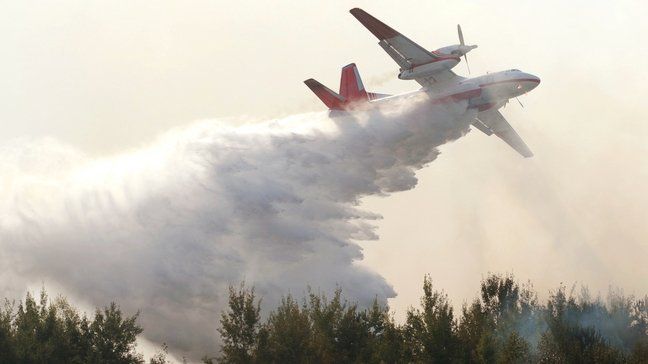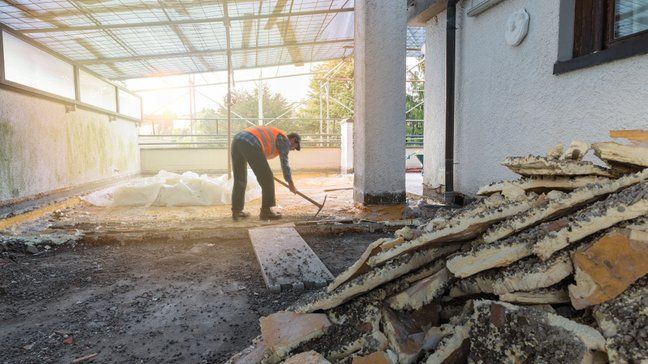The west coast is currently being ravaged by wildfires, including five of the top ten largest wildfires in California history so far. These devastating fires have burned down hundreds of millions of acres of land, resulting in at least 36 casualties and the loss of homes, businesses, and other structures. The entire west coast is experiencing unhealthy air quality, and smoke has reached as far as the east coast and even Europe.
Aside from the immediate consequences in terms of property damage and loss of life, wildfires also have a far-reaching economic impact. From the ongoing costs related to fire suppression and prevention to the loss of revenue, expensive repairs, and insurance hikes that inevitably follow, these fires have lasting financial repercussions.
The current wildfires will have an economic impact on both a local and a national level. While states including California, Oregon, and Washington are some of the most likely to be affected by wildfires, the financial fallout has the potential to be even more widespread.
Fire suppression costs are rising

Battling wildfires is an expensive business, and the cost to fight fires has soared from tens of millions to hundreds of millions in recent years as destructive wildfires have become more and more common.
With 2020 on track to be one of the most devastating wildfire seasons on record, the cost just to get fires under control continues to climb.
You’ll see insurance hikes
As wildfires become more common in areas across the western United States, homeowners insurance and fire insurance is getting more expensive as a result. Some homeowners who live in fire-prone areas are unable to secure insurance coverage at all, with insurance companies canceling policies in high-risk areas.
Those who are able to secure insurance will likely face increased premiums as insurance companies attempt to cover the costs of current and future wildfire seasons.
If you live in an at-risk area for wildfires, you need to make sure you have the right insurance in place to cover all of your bases. Policygenius can help you double-check that you have the right type and amount of coverage for your home – and that you’re paying the best price for it.
Temporary power cuts have affected businesses
Power companies like Pacific Gas & Electric have implemented temporary planned power shutoffs in areas where its equipment is in danger of sparking wildfires. PG&E equipment has sparked over 1,500 fires from 2014 to 2017, and officials expect continued power cuts to be a regular feature of fire seasons to come.
These power cuts can have a negative economic impact when they prevent individuals and businesses from operating as normal. While the company is working toward implementing smaller, less disruptive cuts than the power outages that caused multi-day blackouts in 2018, power cuts will still affect tens of thousands of California residents.
Businesses are also seeing a loss of revenue
The wildfires sweeping across much of the western part of the country also have a severe impact when it comes to the loss of revenue. Many businesses aren’t able to operate normally or at all, and may find it difficult to reopen in the aftermath of the fires while also dealing with other issues such as the pandemic.
Wildfires also decrease the revenue brought in by tourism, which affects everything from restaurants and small businesses to hotels and state parks.
Expensive repairs will be needed

Costly repairs will be necessary for areas where wildfires have burned down buildings and damaged infrastructure. The 2018 wildfire season caused over $40 billion worth of damage, and the 2020 season is on track to cause even more damage.
The cost of the repairs is felt both by individuals whose property has been damaged as well as government agencies responsible for repairing infrastructure and cleaning up debris.
Healthcare costs will rise for those impacted by the fires
Other indirect costs of the wildfires include the healthcare costs associated with treating injuries related to the disaster. This includes treating not only those who were directly injured by the fires themselves, but also those who inhale too much smoke and those who are injured in accidents while evacuating.
Extreme wildfires cause hazardous air quality that can lead to coughs, headaches, and shortness of breath in the short term, and chronic inflammation, heart attacks, and strokes in the long term. Those with preexisting conditions like asthma or compromised immune systems are especially vulnerable.
Economic instability may increase

A report from the Commodity Futures Trading Commission predicts that the increased frequency and intensity of natural disasters like wildfires could result in further economic instability. These disasters can have a negative impact on many disparate areas of the economy including agriculture, infrastructure, residential and commercial property, and the health and wellbeing of American citizens.
Wildfire prevention costs will rise
While strategies implemented to help prevent or curb future wildfires like controlled burns and thinning are necessary, they’re also expensive. California recently passed a bill dedicating $1 billion toward fire prevention over the course of five years, but experts warn that even that amount may not be enough to curtail future fires.
There are many personal costs as well
While it’s not an easy thing to affix a number to, increasingly devastating wildfire seasons also take a tremendous personal toll, from people grieving lost loved ones to those whose houses burned down to those dealing with anxiety and depression caused by the fires.
These losses are often exacerbated by compounding issues like the ongoing coronavirus pandemic, economic inequality, and the effects of climate change.
How to protect your finances from the impact of natural disasters

Experts predict that wildfires and other natural disasters like heat waves and hurricanes will only become more prevalent as climate change continues to accelerate. People all over the world will be negatively affected by these catastrophic events – especially if they live in places with a high risk of fire, floods, or other disasters.
Here are some steps to take in order to prepare for future disasters and keep your finances secure in the face of an increasingly uncertain world.
Make sure you have the right insurance coverage
Insurance coverage for your property is especially important if you live in an area that may be at risk of wildfires. Even if you already have insurance, it’s still a good idea to shop around and compare different policies in order to ensure that you’re getting a good deal.
Again, online tools like Policygenius make it easy to research and compare different insurance options.
Maintain a healthy emergency fund
Experts recommend that you save between three and six months worth of living expenses in an emergency fund. This financial cushion can be a major safety net when it comes to literal emergencies like wildfires as well as other unexpected expenses.
While it can be difficult to increase your savings in a time of increasing economic inequality, it’s a good idea to try to put a little away each month so that you have something to fall back on in case of hard times.
Pack an emergency bag and it keep it up to date
If you live in an area that is prone to natural disasters, you should pack an emergency bag and keep it up to date, including essential such as:
- First aid kit.
- Drinking water.
- Non-perishable food.
- A change of comfortable clothes.
- Toiletries.
- Medications.
- Cash.
- Mask.
- Radio.
- Flashlight.
- Local maps.
- Phone charger and extra battery pack.
Be sure to keep your bag up to date and to swap out any items that are too old or in danger of expiring. You may want to prepare several kits to keep with you at home, in your car, and any other place you spend a lot of time in, such as your workplace or a relative’s house.
Secure important documents
Replacing important documents can be stressful if you have to leave your house during an emergency. You should keep documents in a secure, safe place that you can access quickly if you need to.
Some important documents you may want to take with you include your social security card, birth certificate, passport, and insurance information.
When it comes to other documents like bills and financial statements, consider switching to paperless billing so that you’re able to access them electronically in the case of an emergency.
See if your qualify for tax relief or other forms of aid
If you’ve experienced financial losses due to a federally declared disaster, you may be able to deduct it on your taxes. There are also a variety of wildfire relief funds and resources available, including:
- The Disaster Cash Assistance Program for Washington state residents.
- Disaster loan assistance for business owners from the SBA.
- FEMA Disaster Assistance.
- Red Cross shelters for those impacted by natural disasters.
- The California Association of Food Banks.
- Masks, medicine, and other resources from Direct Relief.
- Disaster Unemployment Assistance for California residents.
Summary
Some experts estimate that the damage caused by the 2020 wildfire season will have a direct cost of over $20 billion, not including the many indirect costs associated with the fires, such as insurance hikes and loss of revenue. As wildfires continue to increase due to drought, warmer temperatures, and shorter winters, they are sure to have far-reaching effects on the economy.
While many aspects of natural disasters are beyond your control, you can stay prepared by reviewing your insurance coverage, packing an emergency bag, and building up your emergency fund.